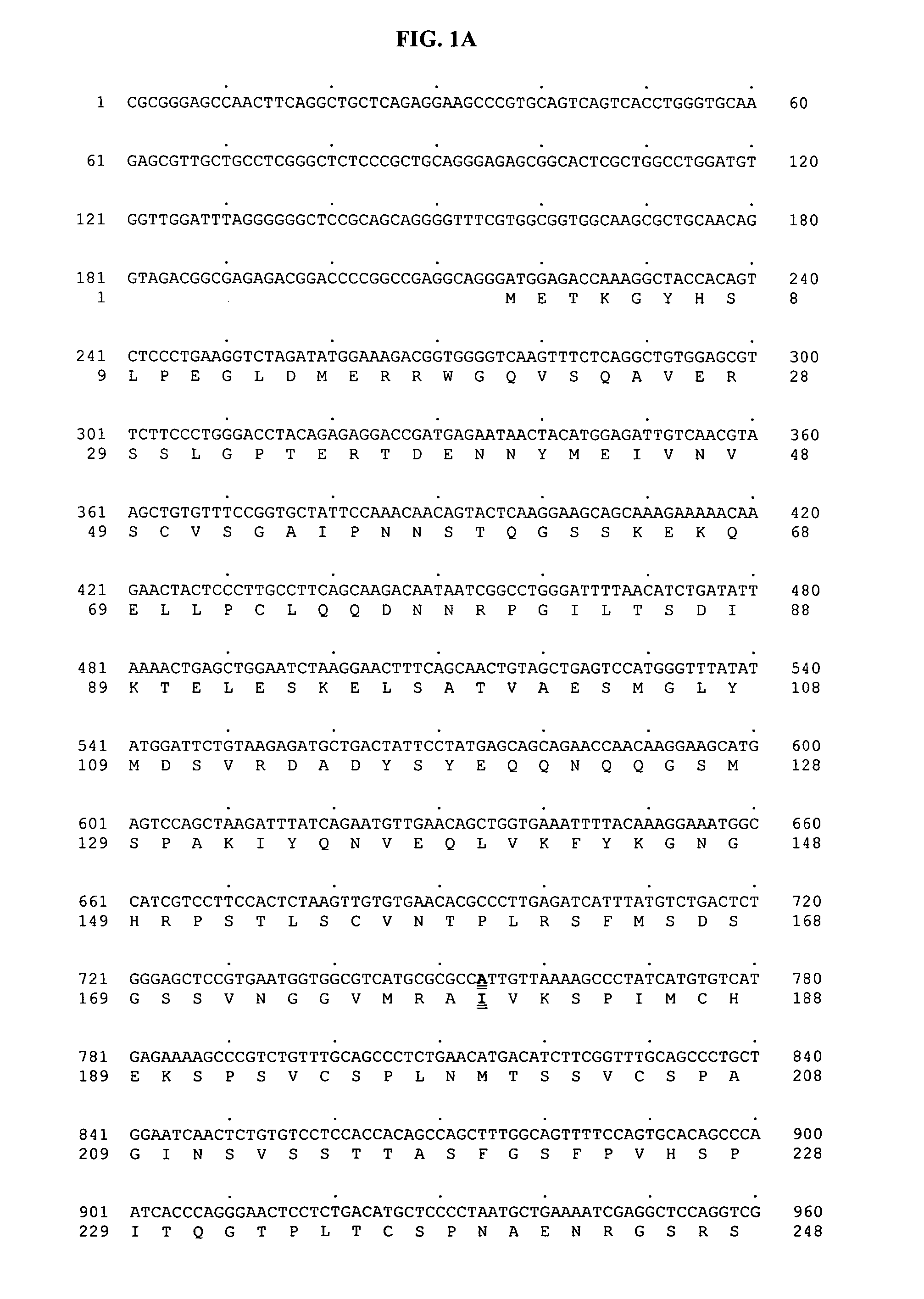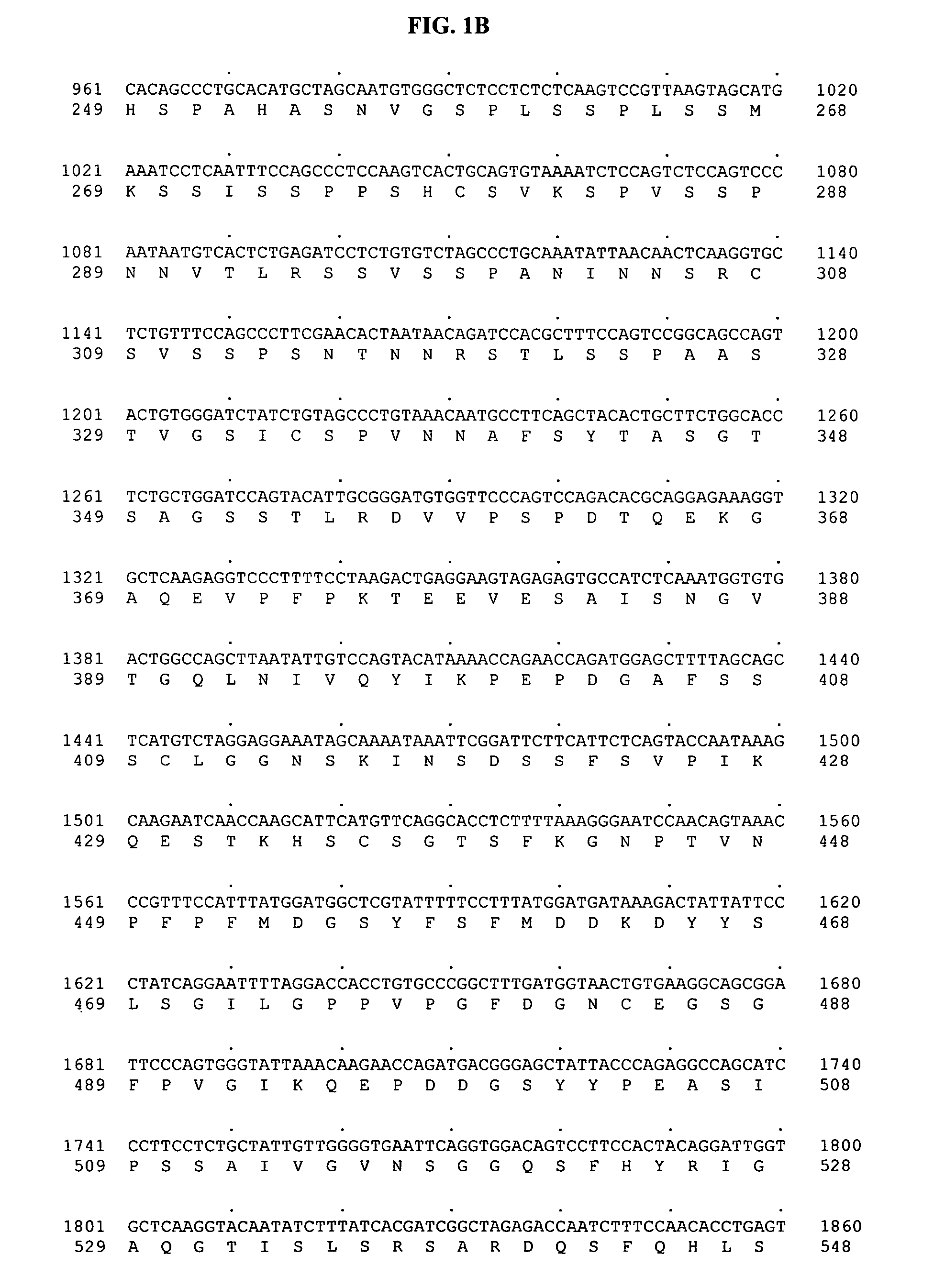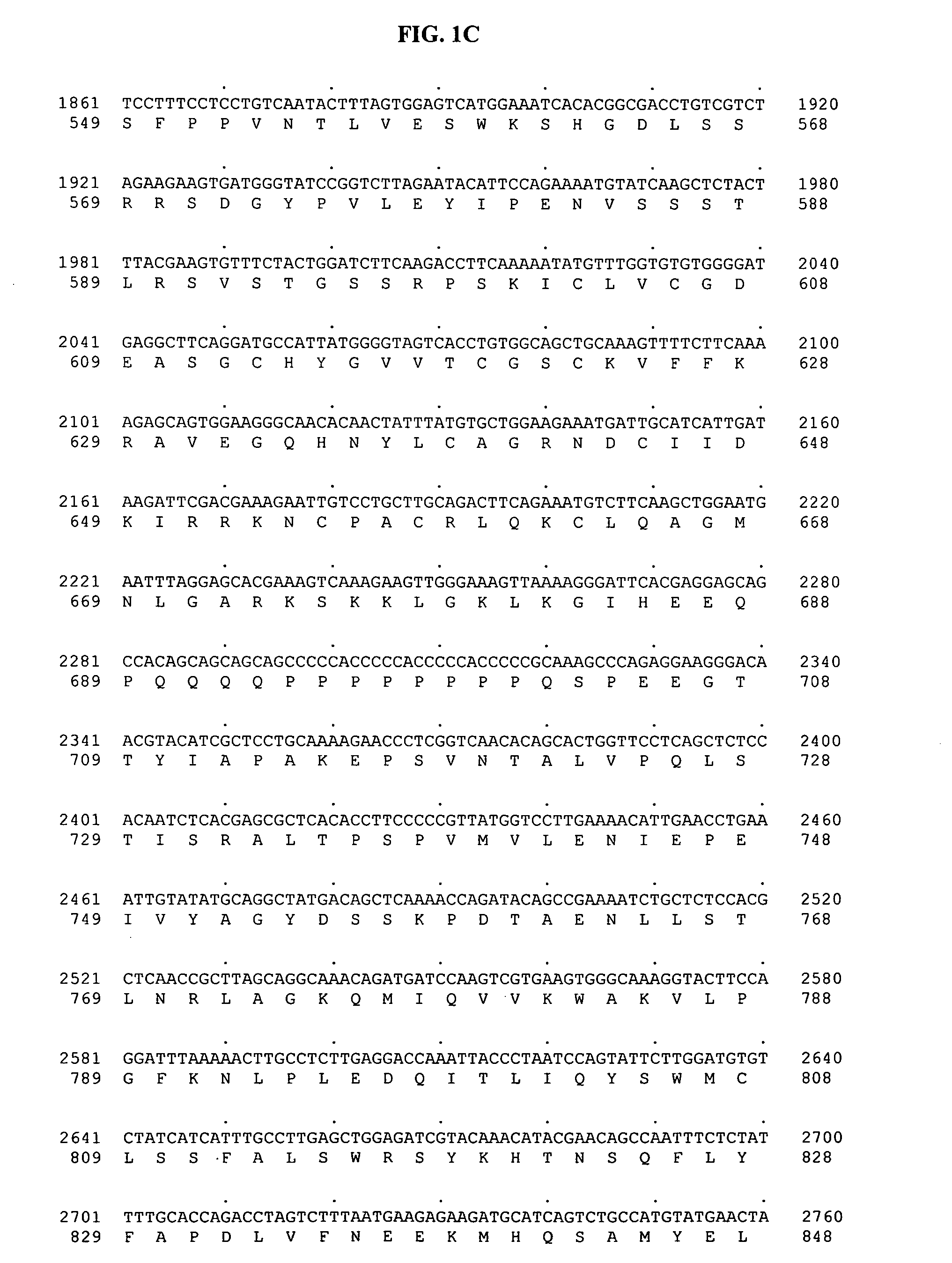Human MLR single nucleotide polymorphisms associated with dose-dependent congestive heart failure and methods of use thereof
a single nucleotide polymorphism, dose-dependent technology, applied in the field of polypeptides associated with the incidence of pparagonist-induced congestive heart failure, can solve the problems of limited number of polymorphisms identified to date, defective protein expression, and variable form confers a lethal disadvantage, so as to reduce the effect of reducing the risk of developing dose-dependent congestive heart failur
- Summary
- Abstract
- Description
- Claims
- Application Information
AI Technical Summary
Benefits of technology
Problems solved by technology
Method used
Image
Examples
example 1
Method of Discovering the Single Nucleotide Polymorphisms (SNPs) of the Present Invention
[0465] SNP discovery was based on comparative DNA sequencing of PCR products directed to the human mineralocorticoid receptor gene derived from genomic DNA from multiple individuals. All genomic DNA samples for SNP discovery were obtained from a panel of thirty-two human subjects obtained from the Coriell Institute (Camden, N.J.), panel # M44PDR. A total of 1 SNP within the human mineralocorticoid receptor gene was identified, and found to be associated with the incidence of dose-dependent congestive heart failure:
MLR-SNP 1: A / G at nucleotide 754 of SEQ ID NO:1 and 3
[0466] MLR SNP 1 was identified using the following protocol. Briefly, portions of the human mineralocorticoid receptor genomic sequence were PCR amplified using the standard Platinum Taq DNA protocol (Invitrogen, Product #10966-083):
[0467] The following sequencing primers (20 uM each) were used to confirm the presence of the ab...
example 2
Method of Genotyping Each SNP of the Present Invention
[0474] Genomic DNA samples from patients enrolled in two Bristol-Myers Squibb Company Phase II clinical trials CV168-006 and CV168-008 trials were genotyped for 1 SNP identified in the human mineralocorticoid receptor gene (see Example 1) and evaluated for association with congestive heart failure.
[0475] 498 subjects enrolled in the CV168-006 trial and 232 subjects from the CV168-008 trial were analyzed in this study. All analyses were based on data collected up to 24 weeks, which was the duration of the short-term phase of the trials. DNA was extracted from frozen blood by a third-party (Genaissance Inc, North Carolina) using a salting-out method (Gentra Systems). All subjects gave written informed consent.
[0476] At the time of this analysis four individuals were diagnosed as having developed congestive heart failure. All four were in the CV168-006 trial; three were being treated with 10 mg of compound A and one with 20 mg of...
example 3
Statistical Analysis of the Association Between Dose-dependent Peripheral Congestive Heart Failure and the SNPs of the Present Invention
[0487] The association between congestive heart failure and the single nucleotide polymorphisms of the present invention were investigated by applying statistical analysis to the results of the genotyping assays described elsewhere herein. The central hypothesis of this analysis is that a predisposition to develop dose-dependent congestive heart failure may be conferred by specific genomic factors. The analysis attempted to identify one or more of these factors in genomic DNA samples from index cases and matched control subjects who were exposed to Compound A in two Bristol-Myers Squibb (BMS) clinical studies (see Example 2).
[0488] SNPs of the present invention were examined for association with congestive heart failure using 3 (genotypes)×2 (congestive heart failure and no congestive heart failure) contingency tables. Analyses were performed usin...
PUM
| Property | Measurement | Unit |
|---|---|---|
| temperature | aaaaa | aaaaa |
| pH | aaaaa | aaaaa |
| temperature | aaaaa | aaaaa |
Abstract
Description
Claims
Application Information
 Login to View More
Login to View More - R&D
- Intellectual Property
- Life Sciences
- Materials
- Tech Scout
- Unparalleled Data Quality
- Higher Quality Content
- 60% Fewer Hallucinations
Browse by: Latest US Patents, China's latest patents, Technical Efficacy Thesaurus, Application Domain, Technology Topic, Popular Technical Reports.
© 2025 PatSnap. All rights reserved.Legal|Privacy policy|Modern Slavery Act Transparency Statement|Sitemap|About US| Contact US: help@patsnap.com



